By Lucy Komisar
Dec 19, 2024
Ross [00:00:28] Welcome to Renegade Inc. You know that the corporate media has lost all credibility when the New York Times admits that it sends stories to the US government for approval before they’re published. This unholy alliance between power and those who should be holding power to account is another indication of corporate journalistic failure. The enduring US whipping boy is of course Russia as the press continue to fan the flames of a new digital and economic Cold War. Ironically it was the Soviet newspaper Pravda that looked for convenient untruths to prop up a failing ideology yet governments and press globally don’t seem to have learned from this epic failure as they parrot more narratives that don’t hold up to scrutiny. But thankfully there are journalists and filmmakers out there who are fulfilling their roles instead of capitulating to be mere government stenographers.
Ross [00:01:35] As somebody who has such a massive pedigree when it comes to journalism, when you look at journalism today – what passes for journalism today – what’s your verdict if you like, what’s your opinion on our journalistic times?
Lucy Komisar [00:01:49] It’s pretty dreadful when I deal with anything that I know about particularly the Russia question, the William Browder hoax. It’s awful. They don’t pay attention to any facts, they don’t care. And if you correct them they’re not interested so I basically disrespect the corporate media. They have their line and they have their interests and they follow that. It doesn’t mean that everything they write is a lie. We had weapons of mass destruction which they wrote about, right. And it was a lie. We had the fakery getting us into the Iraq war. Go back to the Gulf of Tonkin, that was also a lie. So you can go back many years and you can find that the State Department has always leaned on the media, or the Deep State which now includes the CIA, the FBI, the State Department.
Ross [00:02:37] More recently Russiagate has broken here in the US, Mueller has reported. What’s your take on that specific story and how the media have dealt with it?
Lucy Komisar [00:02:48] Well first let’s go back to the report that is said in newspapers – not even using the word alleged – that “the Russians interfered in the 2016 election” and then the other one is the hacking of the DNC. So those are two stories. The election. It turns out that according to Facebook the interference was buying ads on Facebook…
Ross [00:03:10] Which swung the American election?
Lucy Komisar [00:03:12] Yes. And Facebook said that they figured out there was about a hundred thousand dollars spent which they can tie to the Russians or to groups that were working with the Russians.
Ross [00:03:24] Right.
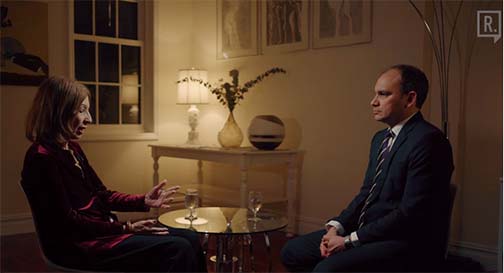
Lucy Komisar [00:03:24] Of that half of it came after the election. The ads were after the election. So they spent fifty thousand dollars and they didn’t deal with candidates, they dealt with all kinds of issues. Now there were multi millions – I think probably a couple of billion –[NOT BILLION, $81 million https://techcrunch.com/2017/11/01/russian-facebook-ad-spend/) that was spent by the candidates and I wonder whether the people that ran those campaigns and had those budgets wondered why didn’t they know what the Russians knew because for fifty thousand dollars they could swing the election and multimillions did not. The whole thing is utterly ludicrous. The other story was the hacking of the DNC computer. There was a report that was done. First the report was described as by I think 17 intelligence agencies – I think Hillary Clinton may have said that as well – that turned out to be totally untrue. There were actually four individuals from four agencies chosen by somebody to get together and do this report. The last line of the report – and you can get this, it’s on the Internet – the last line of the report is, “This is our assessment” – you know about the Russians hacked the DNC computers – “but we have no hard evidence.” What? “We have no hard evidence.” That you put at the end, you’re burying the lead. The lead is, “our assessment is this but we have no hard evidence.” Do you think anybody who writes about this writes, “but they admitted they have no hard evidence.” It’s insanity. It’s a lie.
US intelligence “assessment” of Russian interference in 2016 campaign (with a lot about RT!) https://www.dni.gov/files/documents/ICA_2017_01.pdf
First few pages explains that they are not providing evidence, just saying if something is likely or unlikley
Ross [00:04:45] As a journalist who has worked on so many different cases whether it’s malfeasance, financial fraud, whatever it is, when you look at THIS Russiagate hoax – as it was – what’s the real driving force behind it?
Lucy Komisar [00:05:02] I think there are elements in the Deep State that do not want a collaboration with Russia on things of common interests. I mean ISIS, that was something that needs collaboration from the Russians and they’re warmongers really, I mean there’s something in them, they are warmongers because we know that Putin after he got into power tried very hard and really wanted to be a good friend of the West and everybody knows that economic relations is what helps make good friends and he wanted that too but the warmongering elements don’t want that. Now why don’t they want that? Well one reason is, you need a good war threat going if you have a military industrial complex and you want to throw billions of dollars at useless planes and corporations that make those planes, corporations that will give you a job when you leave your position in the government – because we have a revolving door. So I think one of the reasons is that.
Ross [00:05:58] Are there any other reasons apart from the very clear corporate conflict?
Lucy Komisar [00:06:02] Well I think there’s an ideological reason.
Ross [00:06:04] Yeah.
Lucy Komisar [00:06:04] I mean some of these people are ideological, right wing radicals and they never met a war they didn’t like.
Ross [00:06:11] Right.
Lucy Komisar [00:06:11] And even if they’re not making money from it, they want the war. That’s most of the Republicans. On the side of the Democrats, they’re just as bad on this. They’re using it as a hammer against Trump. It seems to me if you want to attack Trump, you attack him on real issues that have to do with how people are treated in this country; how workers are treated, what rights they have about health care and education. But the Democrats are not talking much about those. Now they’re starting to talk about health care, but they’ve spent so much time on this nonsense they could have organized a population about things that they care about – there have actually have been polls – the population doesn’t care about, it’s just the Beltway. They’ve weaponized these issues. The Russia issue has been weaponized by both sides. I mean we’re in a period of McCarthyism. If you go against the line that says, “the bad Russians” you can be accused of being complicit. People are afraid of that, people are accused of that so even somebody like Bernie Sanders is saying that. Maybe if they’re in a different environment, if they had different people running the CIA and the State Department, they would not feel that kind of pressure.
Ross [00:07:17] What would you say is the one sort of trait that has defined your career as a journalist?
Lucy Komisar [00:07:22] I like to do investigative reporting that shows what the bad guys are up to, and it tends to be reporting that the media – the corporate media – is not doing. I started out dealing with offshore banking, corporate secrecy and that is what got me into the Browder story at that trajectory.
Ross [00:07:41] Right. And let’s talk about the Browder story. Who is Bill Browder? And how did you bump into him? And why was he of interest to you?
Lucy Komisar [00:07:47] He was born an American. He in the late 90s – mid to late 90s – set up a Russian hedge fund.
Ross [00:07:55] And this was Hermitage Capital?
Lucy Komisar [00:07:56] Hermitage Capital.
Ross [00:07:57] Right. And what was that business designed to do?
Lucy Komisar [00:07:59] To buy shares for it for investors but also what it did was cheat on taxes. In one area called Kalmykia – which was a region in Russia – they were trying to help disabled people. A lot of them were Afghanistan war victims and so they said if you had a company and you had at least 50 percent of employees disabled, you get a very big tax write off. He had shell companies set up there in one of those buildings where they have a thousand mailbox companies.
Ross [00:08:29] Yeah.
Lucy Komisar [00:08:29] And he wrote his tax people that he employed certain people that were disabled. Well he didn’t employ anybody because those were just shareholding shells, they had no employees. [In his deposition he is asked who told him he could do that? He said accounting firms. https://c1.100r.org/media/2017/10/Browder-Deposition-April-15-2015.pdf p67-8]
He paid some workers to use their passports. So, the Russians found out about this and got the information. Found out that this guy is working at this machine shop and that guy’s working here and they’re really not…(see these filed in Prevezon case marked to show relevant parts: https://www.thekomisarscoop.com/wp-content/uploads/2019/10/Russian-judgment-on-Saturn-Dalnaya-Steppe-tax-evasion.pdf
Ross [00:08:51] So they weren’t there at all?
Lucy Komisar [00:08:52] Nobody was there. It was a shell to hold shares. So this was in about 2003/4 and the local authorities went after Browder. He ignored them. Then it moved to a federal case and at some point the end of 06 he’d gone out of the country and came back and they would not accept his visa. [I misspoke year, it was nov 05] I mean the guy’s a crook. And he’d been refusing to pay the taxes which came out to about 40 million… couple of companies. Then they found out there was another thing that he was up to which was… at that time Gazprom – which is the major oil company – they didn’t want for security reasons it to be taken over by foreigners so they said – in Russia – “the only people who can buy shares are Russians” – you could buy them as ADR’s in the UK…
http://www.compromat.ru/page_33118.htm and http://www.compromat.ru/page_33043.htm click translate for english
Ross [00:09:38] What’s an ADR?
Lucy Komisar [00:09:38] An American depository receipts. But they cost more and you couldn’t get as many of them. So, what he did is he used cut-out companies to buy the shares -we’re Russians – and send them over to Browder.
From WSJ https://www.thekomisarscoop.com/wp-content/uploads/2019/10/gazprom-scam-vs-charge-takeover-of-companies-wsj-2008-04-04-.pdf
Ross [00:09:50] Wow.
Lucy Komisar [00:09:50] He was being a crook. That came to about 30 million. So, he’s owing now about… at various times it came up to about 70 million. He has to figure out how is he going to handle this.
Ross [00:10:02] Why because they’re now starting to… the Russian government are putting heat… giving him some heat?
Lucy Komisar [00:10:07] Yeah. So, therefore something else happens and it’s still a little murky. There’re people that believe that he was involved in this tax refund fraud which is a totally separate story, but he has conflated them and this is where the Russian treasury was cheated of 230 million dollars in this collusion of lawsuits that added up to two hundred and thirty million [correction, added up to $1 billion, and the tax on that was $230mil] which is just what Hermitage had paid in taxes the year before. So, they say, “we now have zero profits so we now ask for a refund of all our taxes.”
https://www.thekomisarscoop.com/wp-content/uploads/2019/10/details-of-lawsuits.docx also at http://www.compromat.ru/page_22487.htm
Ross [00:10:42] What’s the probability of coincidence, of those two figures being exactly…?
Lucy Komisar [00:10:45] Well it was deliberate. But the question is, was Browder involved in it? And we don’t know that. Some people think he was.
http://magnitskyact.com/offshorealertlondon Filmmaker Andrei Nekrasov says Browder did the tax refund fraud
There were some people that went to jail but they were the middleman and we don’t really know who did that. Meanwhile Magnitsky has been interrogated about the tax fraud.
Ross [00:11:02] Now tell us who Magnitsky is.
Lucy Komisar [00:11:03] Magnitsky was the accountant, Sergei Magnitsky. He was assigned to Hermitage. He was working for Firestone Duncan.
Ross [00:11:09] So he was assigned to Hermitage Capital – the Browder company?
Lucy Komisar [00:11:12] Yes.
Ross [00:11:13] As their accountant.
Lucy Komisar [00:11:14] Yes. He was working for this law and accounting company run by an American…
Ross [00:11:18] Because he becomes a vital bit of the story?
Lucy Komisar [00:11:19] Yes. So they investigate and they interrogate him and this was in 06 which was a year before this search of the companies which Browder says… he says that the papers they stole were used in this fake legal process and that the police that were there – that took the papers – they were the ones that did this tax refund fraud.
But meanwhile Magnitsky had been investigated – interrogated – the year before. Then he’s interrogated twice more in 08 about these issues. [Magnitsky interrogations https://c4.100r.org/media/2017/10/Magnitsky-Testimonies-Oct-2006-June-2008-Oct-2008.pdf
Then he gets arrested in November 08. Browder doesn’t pay any attention to this. Later he’s paying a lot of attention but… he’s in prison. He is there as a witness and he’s part of this… this operation, this tax fraud operation. The treatment is terrible. The prisons in Russia are not like prisons in Scandinavia. He falls very ill and he gets totally inadequate medical care.
[Hermitage Capital posted a professionally produced video about a $230 million tax theft on YouTube. The arrest of a “lawyer and accountant” is only briefly mentioned at the very end, not a word about the torture, nor anything about Magnitsky’s alleged heroic exposing of the tax theft, all of which he would proclaim after Magnitsky died. Browder admits in his deposition to having never even consulted with Magnitsky’s lawyers.]
Ross [00:12:17] So Magnitsky now very sick, inadequate medical care, what happens to him?
Lucy Komisar [00:12:21] He dies. He dies after about 11 months in prison and Browder says – in speeches he gave at places like Chatham House in London, the foreign relations think tank, [https://www.scribd.com/document/25044062/Hermitage-Capital-the-Russian-State-and-the-Case-of-Sergei-Magnitsky] and San Diego Law School [https://www.youtube.com/watch?v=zPCZydwIhyg&feature=youtu.be] – he said, “he was terribly ill. They didn’t take care of them and he died.”
Ross [00:12:42] But hang on. So, Browder actually voiced that Magnitsky was terribly ill…
Lucy Komisar [00:12:47] Yeah.
Ross [00:12:47] He wasn’t taken care of in prison and he died?
Lucy Komisar [00:12:50] Right. Now what…
Ross [00:12:51] What happened?
Lucy Komisar [00:12:53] What happened then is Jonathan Winer who had been in the State Department was then working for APCO – an international PR firm which was also the firm that worked for Khodorkovsky, Mikhail Khodorkovsky the oligarch – and he figured out they have to set up a barrier so that the Russians cannot collect on the 70 billion [million] dollars… jw****@ap***********.com
Search winer here https://newrepublic.com/article/110241/bill-browders-magnitsky-act-avenges-lawyers-death-russia
Ross [00:13:15] That Browder owes?
Lucy Komisar [00:13:16] That he owes. How will they do that? They will invent a story that the Russians murdered Magnitsky, not only just that they murdered him but that eight guards came in to the cell where he was and beat him with truncheons for 78 minutes until he was dead and that’s what he would tell to the Congress and then he would say that in speeches – that was in part of the Magnitsky Act. And it’s a total invention because we know that the first year or two… how did he suddenly discover that where are these truncheon guys coming from. And he puts it in his book as well. But before that, for a couple of years, nothing. Plus, the report that was done by… there was an NGO in Moscow – the Public Oversight Commission charged with looking at prison conditions – it did a report. It says nothing about being beaten. It said, “terrible medical treatment, terrible conditions.”
https://www.thekomisarscoop.com/wp-content/uploads/2019/06/POC-report-from-Pacer-S.D.N.Y._1_13-cv-06326-WHP_419_2-1.pdf [if you search for beaten or beating, you find nothing you find only his heart stopped beating.]
Ross [00:14:15] So what you’re saying is that there’s a very clear moment in the Browder timeline on this story which is that he initially says, “appalling treatment, died in prison because he didn’t get access to good medical care” and almost overnight if you like, suddenly “beaten for 78 minutes by X number of guards and died after that”?
The different stories
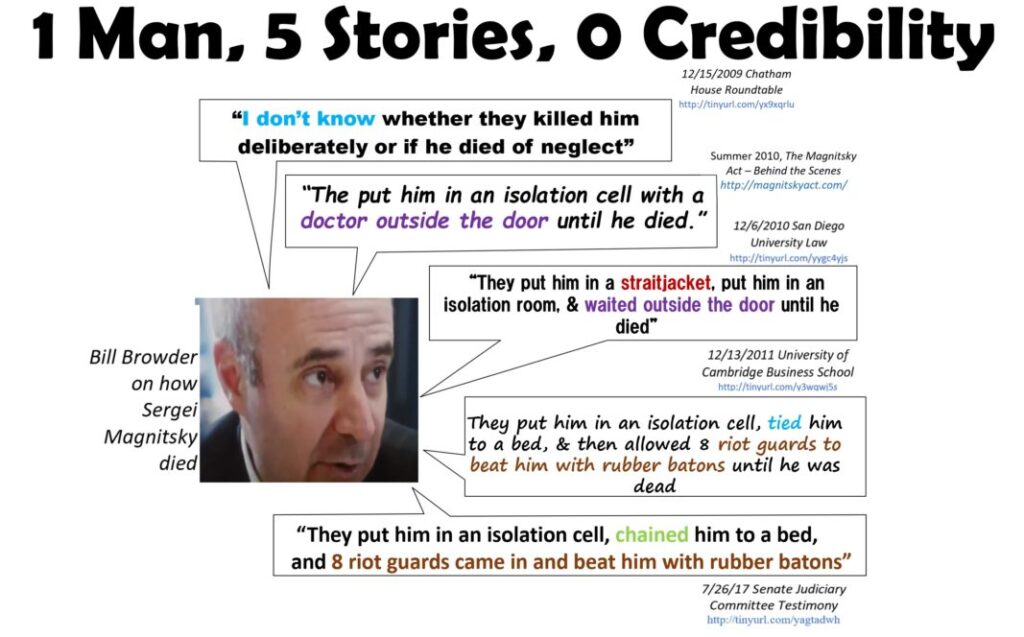
Graphic by Michael Thau
Browder tells Chatham House, London, about the circumstances of Magnitsky’s death in December 2009: “I don’t know what they were thinking. I don’t know whether they killed him deliberately on the night of the 18th, or if he died of neglect”
https://www.scribd.com/document/25044062/Hermitage-Capital-the-Russian-State-and-the-Case-of-Sergei-Magnitsky
“They him in a straight-jacket put him in an isolation room and waited 1 hour and 18 minutes until he died” — 6 Dec 2010. San Diego Law School https://youtu.be/zPCZydwIhyg
Then he changed his story
“They put him isolation cell, tied him to bed, then allowed eight guards guards beat him with rubber batons for 118 min until he was dead” — 13 Dec 2011. University of Cambridge Judge Business School https://youtu.be/32AqentzbOQ
US Senate Judiciary Committee https://www.judiciary.senate.gov/imo/media/doc/07-26-17%20Browder%20Testimony.pdf
Lucy Komisar [00:14:35] And nobody in the Congress or in the media ever asked for evidence. There is no evidence.
Ross [00:14:53] The way you got to this story is through a lot of the investigative work you’ve done on offshore banking.
Lucy Komisar [00:14:59] Yes.
Ross [00:15:00] And then you’re pulled towards the Browder story because you smell a rat?
Lucy Komisar [00:15:03] Yes.
Ross [00:15:03] And he’s also got some previous?
Lucy Komisar [00:15:06] Yes.
Ross [00:15:07] That’s a fair comment, isn’t it? It’s not just you saying this, there’s also another player in this because there’s a man called Andrei Nekrasov?
Lucy Komisar [00:15:14] Yes.
Ross [00:15:14] How does Andrei fit into this?
Lucy Komisar [00:15:15] Well, he thought that Browder was a heroic guy and he started to make a movie about him. He had done some other movies which were very critical of Putin, for example – a Litvinenko movie. But as he investigated it, he began to smell a rat. One of the funny things… the part about being beaten to death. He investigated the cell that Browder said that Magnitsky was in. He said, “Eight people cannot fit in that cell!”
Ross [00:15:41] But isn’t that really interesting because he tried to do a reconstruction and then when he got these guards in all the garb and the batons and the helmets and… they literally couldn’t get in.
Lucy Komisar [00:15:52] They couldn’t get in.
Ross [00:15:52] Well no journalist or member of the public would ever, you know, gone to the trouble of doing that recreation. And that’s when he started thinking, “Hang on. I smell a rat here.”
Lucy Komisar [00:15:59] Yeah. And the other rat was the fact that after his film came out, there was going to be a screening at the European Parliament, and it was blocked by Browder’s friends. The real problem is political people that don’t want to know the truth, they don’t want to hear it.
Video Clip – Andrei Nekrasov [00:16:15] I believed the protagonist of that story over my film – Bill Browder – and he basically, you know, he cheated. He kind of deceived me as he is deceiving the whole world. It’s for the first time I realized that you can go into this sort of denial mode about something you see an evidence of but don’t want to believe because it goes against your, you know… even your politics. Because I had to carry on filming I had to find motivations for my actors. I had to make a coherent film – by the way. It was just a short article as most journalists write about it, they just write a short article. Copy pasting, browsing version and then they go on to another story. So… but I had to do a good film and maybe that was the reason I started to kind of say, “Hold on, I must really make sense of it.” If Browder is wrong, we have to expose it. Everyone said… told me that. So, it’s only when the film was finished and Browder saw it and starting first with the legal pressure then I believe was political pressure, because for some reason he has friends in parliaments, Congress, governments just in about every country – the question is why by the way. So then, it’s only then that all those partners in this production one by one basically started to renege and basically chicken out. I don’t blame people for believing Browder, because I did it myself, except that when you do investigate something and present the evidence, then I really expect people to look at it, because I did my investigation in good faith. You know we have this amazing case where the whole world is being deceived by someone with a vested interest in a financial scam. And people don’t ask simple Russian questions. And as far as I’m concerned this is not a Russian story anymore, it’s a story of sort of a kind of a crisis in the Western political and media system.
Lucy Komisar [00:18:42] So, people know about that story, a small number of people know about that story. Fewer people know about another story and that has to do with the US media, NBC. NBC has been virulent in the Russiagate story, reporting that of course there’s collusion between Putin and Trump and… the whole story. But there’s another really interesting story which goes into why people don’t know the truth about Browder and about many other things. There’s an interesting reporter named Ken Dilanian in Washington – he’s a national security reporter for NBC. And I don’t know how he got into the story, but in 2016, he was reporting the Browder story and he was reporting it as… he knew, he found out that Browder was a crook. There were a lot of emails going back between him and Browder. He was trying to get an interview with Browder and he was telling him these things like, “I know these things that you said are not true,” for example. “That Public Oversight Commission report, you put it on your website in Russian and English, but you added things in the English that are not in the Russian. It’s not there.” And Browder’s response on the email is, “a clerical failure of some sort.” OK. Why do I know about this? I know about this because the e-mails were hacked, and they’re available online. There were e-mails between Browder and Dilanian and in the loop – Dilanian did not know this – were two people from the State Department. They are Russia experts in INR, which means intelligence and research. They were learning everything that was going on, and they knew that Browder was not telling the truth. The State Department knows it.
The Hack (some of these links are now blocked)
Part 1: https://mega.nz/#!tjYVzTgI!66bAnh0fTInWv8a6zh5ByzJJwtnW5w5cCq4QuDpoRkI
Part 2:
Part 3: https://mega.nz/#!Vn5VyKoL!Qry1QqYv_K439QlsGagVjQON37PVqW_Ij4ie_ZeDthM
Password: b0b_0770-M@i1
https://pastebin.com/5Jr2tnu3 Also at https://justpaste.it/18s1y
Ross [00:20:25] Right. So now we’re not just talking about a media that isn’t reporting or turning a blind eye willfully, we’re now talking about a political process.
Lucy Komisar [00:20:33] Yes because the part I didn’t finish was, the story was killed. NBC killed the story. The emails of Dilanian saying, “Well tomorrow we’re gonna go live with this tomorrow.” Maybe he’s just saying it to try and get a quick answer. But there was a lawyer’s letter that was sent to NBC.
The letter is full of fabrications which I can document if you want. Which Dilanian had already shown to be false.
Here is the Oct 2017 twitter post where Dilanian tells people to read my 100Reporters Browder/Magnitsky article.
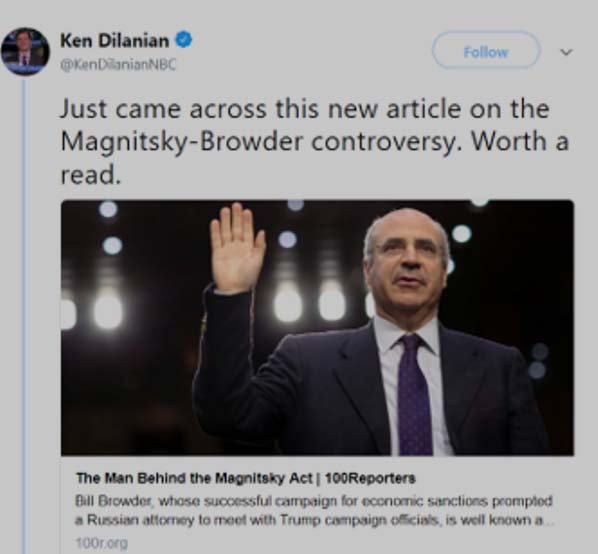
Ross [00:20:51] So as soon as the lawyer’s letter hit the desk they said, “No. Too hot to handle. This goes in the bin.”?
Lucy Komisar [00:20:56] I don’t know the reason. Maybe they said that, but I looked at everything they said in the lawyer’s letter, and Dilanian was correct and they were wrong on everything. And NBC is part of a multi-billion-dollar corporation. Are they really afraid of Browder? I think they were leaned on by the State Department. The State Department did not want this story to come out. They were worried about the screening of the Nekrasov film at the European Parliament. That’s in the emails also. They didn’t want this to come out. Now the next month is the famous Trump Tower meeting where the Russian lawyer Natalia Veselnitskaya goes and tries to tell Trump that this Magnitsky story is all wrong, it’s all a fake, Browder is a fraud. If the NBC report had come out in May – which is when Dilanian said he wanted it to come out – Natalia Veselnitskaya would not have needed the meeting with Trump Junior and Jared Kushner, because it would have been a big story, but there wasn’t a big story.
Ross [00:21:54] This might be – to people watching – a bit of a storm in a teacup, you know, there’s this guy who had a hedge fund, there’s a bit of tax evasion… but actually the ramifications are huge, aren’t they? Firstly, there are the economic ramifications of the Magnitsky Act now which is… has a chilling effect on people who deal with Russia, but also the bigger point is the very real possibility now of conflict between two very significant nations.
Lucy Komisar [00:22:21] Well, I think it’s very dangerous and things have been moving up. Now, the Magnitsky Act was in 2012, that’s two years before the annexation of Crimea, so it helped start this, it created the mood which is continuing now to a point where if there are planes and boats that get too close to each other, it’s very worrisome. And it’s also incredibly stupid on the part of the Americans, because Russia is needed to fight ISIS and the real terrorism is that kind of terrorism, and instead of taking care of the population’s security and safety by working with Russia – and whatever other country would be helping on this – the American officials, the Deep State, want to pick a fight…
Ross [00:23:05] But ultimately what you’re saying is, “it’s actually… if you follow the money it’s the military industrial complex?”.
Lucy Komisar [00:23:09] Well, yes it is. And you need to have an enemy, because how you’re going to have a massive Pentagon budget? There was supposed to be a peace dividend, remember. Whatever happened to the peace dividend? There was supposed to be a peace dividend. There was never going to be a peace dividend, because the people in charge figured out how we can have enemies. Forever enemies, forever wars.
Ross [00:23:27] From your point of view then, if a media isn’t holding power to account, if power is putting pressure on THE media to say what they need it to say, it seems hopeless.
Lucy Komisar [00:23:40] It is hopeless unless the population begins to take a different view. There can be challenges. People are still able to speak. I guess I’m always an optimist I think… I wouldn’t be writing these stories if I didn’t think they would have an impact.
Ross [00:23:54] Give us a snapshot then from somebody who’s watched this so so closely. Give us a snapshot of where the Browder story is at at the moment.
Lucy Komisar [00:24:01] On the side of the corporate media, they’re continuing to tell lies. Most of the media in the US has it very wrong even on specific things like Browder says, “after this attack – the search of the offices – I went out and hired the best lawyer I could get, Magnitsky.” Magnitsky had been working for him for about 10 years.
Ross [00:24:21] Was he a lawyer.
Lucy Komisar [00:24:22] No. He was an accountant. He was not a lawyer, he was an accountant. And all you have to do is look at the testimonies that Magnitsky gave in 06 and 08 and they say, you know, his job. Auditor. Where did he go to school? It was an economics college. It’s clear. It’s easy to find out the truth. In Browder’s deposition they asked him, “did Magnitsky go to law school? Have a law degree? No. No.
Vidoe Clip [00:24:47] Mr. Magnitsky is an attorney, you think that’s accurate?
Vidoe Clip [00:24:52] He was my attorney.
Vidoe Clip [00:24:53] He was your attorney?
Vidoe Clip [00:24:53] Yeah.
Vidoe Clip [00:24:55] Acting as…?
Vidoe Clip [00:24:56] In court representing me.
Vidoe Clip [00:24:58] I see.
Vidoe Clip [00:24:59] And he had a law degree in Russia?
Vidoe Clip [00:25:04] I’m not aware that he did.
Vidoe Clip [00:25:05] I see. And he had… he went to law school?
Vidoe Clip [00:25:10] No.
Vidoe Clip [00:25:12] He didn’t go to law school, he didn’t have a law degree but he was your lawyer?
Vidoe Clip [00:25:16] And he represented me in court.
Vidoe Clip [00:25:17] I see.
Vidoe Clip [00:25:18] I should say he represented Hermitage Fund companies in court.
Lucy Komisar [00:25:20] Browder under oath in the US federal court, when the lawyers for the other side are there, is not going to commit perjury. Most of what he said was, “I don’t know and I don’t remember,” dozens and dozens of times. “I don’t know and I don’t remember.” But he is not going to commit perjury, so what he says in a hearing at the US Senate, he lies. What he says in a deposition – US federal court – “I don’t know, I don’t remember.” And whenever anything happens, he’s always on television, anything relevant, anything that a bank is doing or any way that he’s their go-to guy and he lies. He lies lies lies. And you can… you might say, “well, you’re saying all these things, aren’t you worried, you know, you’re calling this guy a liar, you’re saying he’s a crook?” I can prove every bit of about it? And people should not be worried about him. The last thing he wants to do is to go on a stand in a courtroom and be forced to tell the truth.
Ross [00:26:19] You must tear your hair out when you cast your mind back to being, you know, The Mississippi Free Press to today and the tawdry mess that we find journalism in?
Lucy Komisar [00:26:28] Yes. Yeah it is.
Ross [00:26:29] How do we fix it?
Lucy Komisar [00:26:30] Well, there needs to be some more brave people. I’m still trying to get some of these stories out that I’m telling. This is going to be on the air in various places, but what I’m telling you still has not been in the media except the story I did for 100 Reporters and that was in October of 2017. But now these stories have not been any place.
Ross [00:26:53] What keeps you going, because you’ve got a wonderful career – I’m not saying it’s over for a second by the way – an incredibly illustrious and you’ve addressed some of the really big issues, civil rights right through to the horrendous financial crimes that have gone of late. What’s in you? What’s the motor that keeps going?
Lucy Komisar [00:27:12] Well I think I’m a child of the 60s, and that’s when we believed we could make changes in the world. And we also thought that part of living in a decent way was to be committed to doing good things. And if you’re a journalist, you need to do investigative reporting and expose the bad guys. I think that’s what keeps me going.
Ross [00:27:35] And that is undiminished.
Lucy Komisar [00:27:39] Right.
Ross [00:27:39] Lucy thank you very much for your time.
Lucy Komisar [00:27:40] It’s my pleasure.
Ross Ashcroft did not post this video. He did not reply to my queries about why he didn’t post the video. So on his death I am posting it now. How do we get the truth when even influential “good guys” lack courage? Why does the “progressive” media continue to lie/kill the Browder story? Start with “The Nation” and “Columbia Journalism Review” which killed Browder stories. Details to come.
This story has been blocked by FaceBook. Is FB part of the Deep State? Why does it want to prevent people from knowing the truth about the Browder/Magnitsky hoax? Is it following orders of the U.S. government?


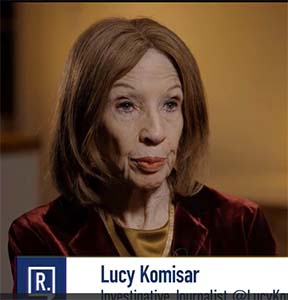
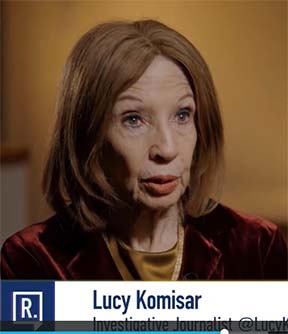
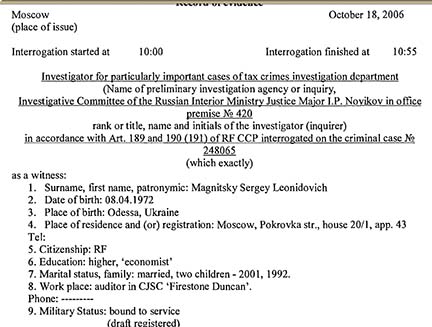
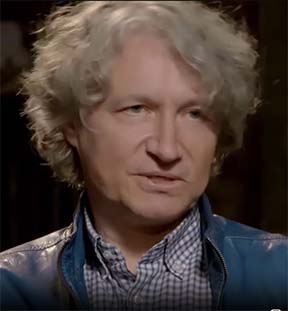
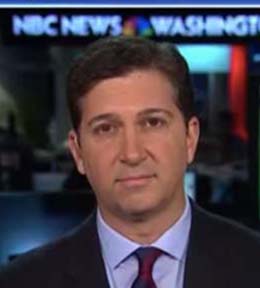
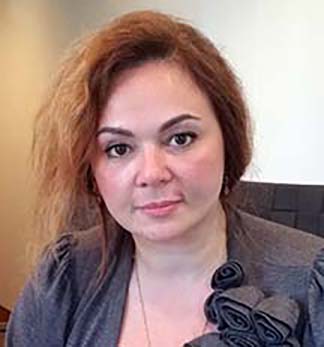
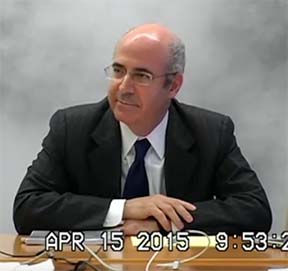
Maybe Ashcroft was issued a ‘D’ notice by the UK government to prohibit publication of the interview on grounds of national security? Browder’s grift has been essential to various geo-political initiatives of the 5 Eyes nations, designed to escalate tension with Russia. The government of every nation in the West has gobbled up his bulldust, and Browder’s hagiography in mass media is the culmination of significant investment by the neo-conservative establishment. If Ashcroft was issued with a D Notice he would not have been able to tell you about it.
Interesting. Browder thrives under governments that repress free speech and free press, all under the guise of “national security.”
What killed Ross Ashcroft?
LK: I don’t know. Could not find obit.